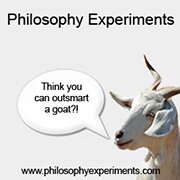Motherhood: The Birth of Wisdom, edited by Shelia Lintott (Wiley–Blackwell), £11.99/$19.95
Fatherhood: The Dao of Daddy, edited by Lon S. Nease and Michael W. Austin (Wiley-Blackwell), £11.99/$19.95
 These two recent entries in the Philosophy for Everyone series exemplify many of the strengths and weaknesses of the recent publishing trend of generating anthologies promoting philosophy to a wider audience.
These two recent entries in the Philosophy for Everyone series exemplify many of the strengths and weaknesses of the recent publishing trend of generating anthologies promoting philosophy to a wider audience.
One challenge for such books is selecting a topic that warrants an entire collection of essays. This can be a bit trickier than you might imagine – my favourite “what were they thinking” moment being The Atkins Diet and Philosophy. However, motherhood and fatherhood obviously raise plenty of significant philosophical issues of interest to those both inside and outside of philosophy departments. The series editors were also smart to divide it into two volumes instead of creating a single book on parenting in general. While there are many questions that apply to the parent role in itself, half the fun is the opportunity for the authors and readers to consider what issues might be thought of as unique to one particular parental role versus another.
Both collections contain roughly 16 articles, with the majority touching on an ethical or social/political topic, such as how do we raise a child to become an ethical adult, how should we address questions about race and gender, should we lie to our children, and what constitutes the virtuous parent? There are also articles covering parental identity, the beauty of a newborn, the role of expertise as opposed to intuition, the influence of the media on our understanding of parental roles, and the debates about “natural childbirth”. Nearly all of the writers make explicit reference to their own experiences as parents; indeed they frequently draw on these experiences as the subject matter and inspiration for their pieces. One of the virtues of these collections is how they demonstrate the ways in which the study of philosophy can really assist us in addressing concrete dilemmas.
The authors have been instructed to avoid excessive jargon, not to assume that their readers are familiar with the history of philosophy, and to keep it short. With only a few exceptions they accomplish this, and thus the collections are approachable for parents (or soon-to-be parents) and undergraduates taking philosophy courses, the two most likely sets of readers. Readers should be able to navigate their way through any of the essays, though not necessarily with equal ease. Still, anyone who picks up either book is unlikely to be looking for a simplistic analysis. The downside of this is twofold. Obviously, none of the authors can delve into their particular topic to the extent they would like. Also, it can be mind-numbing after a while to have one author after another “introduce” Kant or Aristotle or virtue theory or utilitarianism.
Although the primary focus is on philosophy, a distinctive feature of the Philosophy for Everyone series is that each collection includes a few essays from non-philosophers: anthropologists, physical therapists, writers, psychologists, occupational therapists, nurses, and others. Although some of the empirical data is interesting, this kind of thing is available in many other works on motherhood and fatherhood – and I found myself wanting less of it and more philosophy. Furthermore, there aren’t alternative perspectives represented from these fields. The result is that those scholars who are chosen carry a degree of authority that’s probably not appropriate.
Some may kvetch about the choice of the topics. As I mentioned above both collections are skewed toward value theory, with little material from philosophy of mind, philosophy of language, logic, or any number of other areas of potential interest. I would have liked a bit more about the nature of being a parent once a child actually becomes an adult. It’s slightly ironic that the focus is almost solely on parenting of the young, since it’s probably not that long ago that a number of these writers were living at home with their own parents. These are former philosophy students after all. There is also a kind of unrelenting optimism and joy pervading the articles. Certainly this reflects one aspect of parenting, but the absence of the consideration of the darker sides of being a father or mother is conspicuous by its absence. Still, perhaps this is understandable, as it’s not clear who wants to read a chapter entitled, “What obligations do we have to our son, the crack-head Neo-Nazi?”
Measuring the success of collections like these turns on what you expect from them, and I think these two pull it off. There are few out-and-out clinkers, and only a couple of times did an author’s sanctimonious tone make me shout at the page. By and large the articles are well-written, touches of humour are sprinkled throughout, and the authors can translate complex philosophical theories into a readable format. They apply their work to questions that matter, and even when you don’t agree with what they say, there’s enough substance here to create an interesting discussion.
Rodger Jackson is associate professor of philosophy at Richard Stockton College
Subscribe to the magazine to read reviews as they’re published
 Email This Post
Email This Post 



This is a very strange statement:
‘it’s not clear who wants to read a chapter entitled, “What obligations do we have to our son, the crack-head Neo-Nazi?”’ The type of problem this title suggests, in varying degrees, a child totally out of control, is one which many parents are desperately dealing with and might appreciate assistance from any source, even philosophy.
I don’t suppose anything of the following sort was covered: “Kid Crazy: Why We Exaggerate the Joys of Parenthood”
http://healthland.time.com/2011/03/04/why-having-kids-is-foolish/#ixzz1HSo9w06l
How about a bit of balance here. Why not a “crack-head Trotskyist”?